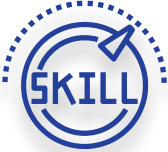Introduction
Working in the realm of big data is an outstanding career option. The job openings for data engineers have increased by 30 % over the last five years, much more than the average rise witnessed throughout the country. According to Glassdoor, data engineers make more than $110,000 annually.
Before entering a field, it is good to understand what to anticipate, even though employment growth and income are both enticing. Here’s everything you need to know about the data engineer job to start your career.
Data Engineer’s Skill Set
As highly compensated information technology specialists, data engineers must know several applications and procedures. Therefore, acquiring and refining these skills may make you a competent data engineer and a more desirable applicant.
1. Coding
Coding is a highly regarded ability that is required for the vast majority of data engineering jobs. Numerous organisations want employees with at least a fundamental grasp of programming languages such as:
- Python
- Golang
- Ruby
- Perl
- Scala
- Java
- SAS
- R
- MatLab
- C and C++
2. Data Warehouse and ETL Tools
Data warehouses and ETL enable businesses to use extensive data in a meaningful way. Data that originates from a variety of sources are standardized via this process. The process is known as ETL, which stands for “Extract, Transform, and Load,” collects data from various sources, transforms it so it can be analyzed, and then feeds that data into the warehouse. Several prominent ETL tools include Talend, Informatica PowerCenter and AWS Glue.
3. Database Systems
Data engineers should have a comprehensive grasp of database administration. Since Structured Query Language (SQL) is the most popular option, obtaining a thorough understanding is tremendously beneficial in this profession. SQL is a database programming language that retrieves and maintains table-based data. You should also get familiar with alternative database technologies, such as Bigtable or Cassandra, particularly if you want to engage in freelance data engineering work.
4. Basic Understanding of Machine Learning
Even though machine learning is generally the domain of data scientists, it might be advantageous for data engineers to have at least a fundamental grasp of its use. Building your expertise in data modelling and statistical analysis will enable you to develop solutions that can be used by peers and make you an invaluable addition to any firm.
5. Communication Skills
As a data engineer, you are required to be able to communicate with coworkers who may or may not have technical competence. Because of this need, having excellent communication skills is quite crucial. Although you often collaborate with other data specialists, such as data scientists and architects, you are generally required to discuss your results and recommendations with non-technical colleagues.
6. Clear and Concise Writing
Many ambitious data engineers choose to disregard it, thus depriving themselves of greater employment chances. The significant advantages of writing for data engineers are as follows:
- Enhance your knowledge. According to Ian Goodfellow, a data engineer at Apple, writing blogs helps to consolidate and deepen the comprehension of complicated professional topics.
- Clarify complicated facts for others. You may be responsible for reporting data and outcomes to supervisors, team members, and other parties, which demands clear and succinct writing.
Data Engineer’s Day-to-Day Routine
Typical day-to-day task of a Data Engineer includes,
- Examine email and respond to messages.
- Spend 15 to 30 minutes reviewing progress and challenges with the team.
- Verify that the work done by other team members adheres to best practices and performs as intended.
- Meet ad – hoc with people to address any issues or roadblocks.
- Write/test/execute programs and algorithms on the data to ensure they function as intended.
- Organise team responsibilities for the following days and weeks and discuss choices with management.
- Creating Frameworks.
- Developing new data validation methods.
- Writing accurate queries or ETL logic.
- Sorting and Stitching data.
- Determining and Evaluating New Data Sources.
- Developing Data pipelines based on requirements.
- Collecting Requirements for Data Models.
- Managing Real-time Data and making sure it’s Secure.
Data Engineer Career Prospects
New Data Engineers begin their careers in entry-level employment or internships. In the early stages of a data engineer’s career, the emphasis is often on smaller, ad hoc initiatives. However, as the engineer advances in their career, they begin to take on a more hands-on role in planning and strategy, as well as increased involvement in the overall design of the data pipeline.
Junior Data Engineer
As an initial step into data engineering, the job description often focuses on bug repair and short, task-oriented projects. Typically, the junior engineer’s role is not to construct and expand a whole pipeline but manage data infrastructure. A junior engineer works under the supervision of a senior data engineer on tasks such as debugging, object-oriented programming, and the addition of lesser features.
Most new data engineers have minimal coding experience or limited data-related coding skills. Your objective should be to master fundamental skills such as coding and debugging while acquiring expertise in advanced coding, data design, and pipeline construction. This professional stage typically lasts between one and three years.
Mid-Level Data Engineer
As their careers advance, data engineers continue to work on ad hoc requests in a task-oriented capacity. At this point, data engineers with a mid-level position start playing a more proactive and managerial role in their projects. This is often when data engineers discover their passions and build their skills and expertise.
Senior Data Engineer
Typically, senior engineers are more active in constructing and managing data gathering systems and pipelines. Senior data engineers may also assume a leadership role, supervising younger technical teams and delegating ad hoc assignments. Typically, this position involves much more cross-functional cooperation to design pipelines optimised for deeper learning and analysis.
The data engineer job path offers the opportunity to create and develop data applications. As one of the most sought-after occupations in technology, it is a very competitive area to join. However, technical abilities aren’t enough for this role. They must thoroughly understand how data and pipelines generate business value.
Conclusion
The data engineer’s journey consisted of constructing the raw data he provided, sorting, processing, and discovering its natural components. Only after he has processed and verified the data can he talk with his organisation about whether or not to make a significant choice that may contribute to the expansion of himself and his firm. This promising career path is a bit difficult but enables you to grow with the vast knowledge and power of the technological world.







